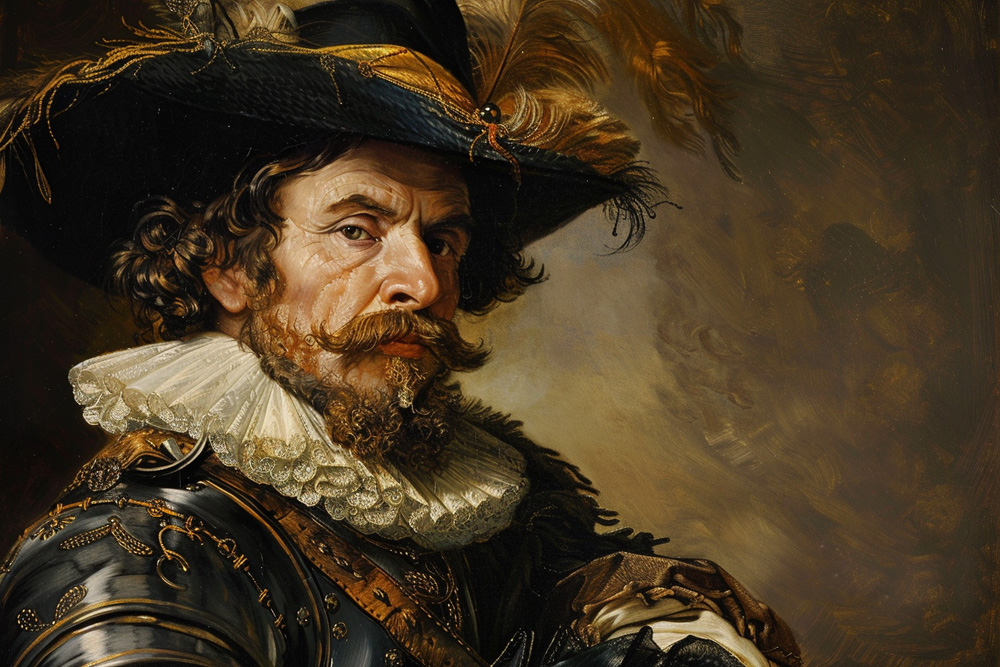KidZone Maritime Stories (Historical Fiction)
Gallows Math: The Ruthless Calculus of Power
Richard Coote, the Earl of Bellomont, stood among the crowd gathered at Execution Dock, his face a mask of stern indifference. As Captain Kidd was led to the gallows, Bellomont’s thoughts were a whirlwind of memories and justifications. His position of power and wealth had been carefully crafted through shrewd decisions and ruthless pragmatism. Watching Kidd’s impending execution, Bellomont couldn’t help but reflect on the choices that had brought him to this moment.
Bellomont had always been ambitious. Born into a noble family, he had learned early on that power and influence were the true currencies of the world. His rise through the ranks of the British aristocracy had been swift and calculated. Every alliance, every investment, had been meticulously planned to expand his reach and secure his future. His tenure as governor of New York, Massachusetts, and New Hampshire was not just a duty but a stepping stone to greater influence.
The opportunity to commission a privateering expedition against pirates had seemed like a golden venture. The seas were rife with lawlessness, and the promise of capturing pirate treasure was too enticing to ignore. When William Kidd, a respected privateer, was recommended for the task, Bellomont had seen a perfect match. Kidd was experienced, daring, and, most importantly, loyal to the Crown. Bellomont and his fellow investors had high hopes that this venture would bring immense wealth and prestige.
But as Kidd’s fortunes turned, so did Bellomont’s perception of him. The capture of the Quedagh Merchant had set off alarms. The ship’s connection to the powerful East India Company had made the situation politically volatile. Bellomont knew that any association with piracy could tarnish his carefully curated reputation and threaten his economic interests. The East India Company was a behemoth, and its influence stretched across continents. Offending such a powerful entity was out of the question.
As the political and economic pressures mounted, Bellomont had distanced himself from Kidd. It was a matter of survival. He had to protect his own interests, even if it meant abandoning the man he had once championed. Kidd’s trial and the subsequent fallout had only solidified Bellomont’s resolve. He had testified against Kidd, painting him as a rogue who had overstepped his bounds. It was a necessary betrayal, or so he told himself.
Standing there, watching Kidd prepare to meet his end, Bellomont’s thoughts were a mix of justification and unease. He reminded himself that his decisions had been pragmatic. Kidd had become a liability, a threat to everything Bellomont had built. His own survival and prosperity demanded sacrifices, and Kidd was one of them.
Bellomont’s eyes narrowed as he thought of the future. The execution would serve as a public display of the Crown’s resolve against piracy, reinforcing the rule of law and order. It would also appease the East India Company and the merchants whose interests were aligned with his own. The crowd would see justice done, and Bellomont would be seen as a steadfast defender of British maritime law.
Yet, beneath his composed exterior, a flicker of doubt gnawed at him. Kidd had been a good man, a loyal captain who had set sail with the best intentions. The line between privateer and pirate had always been thin, and Bellomont knew that Kidd had not entirely crossed it willingly. The mutinous crew, the desperate circumstances—they had all played a part. But in the harsh calculus of power, such nuances were inconvenient.
As the executioner placed the noose around Kidd’s neck, Bellomont steeled himself. He was a man of power, and power required hard choices. The sacrifices made today would secure his position tomorrow. The cries of the crowd, the creak of the gallows—it was all part of the necessary theater.
Bellomont turned away before the final moment, unable to watch the life leave Kidd’s body. He walked briskly through the crowd, his mind already shifting to the next challenge, the next opportunity. Behind him, the grim spectacle continued, a testament to the harsh realities of a world where survival often demanded the abandonment of ideals and the embrace of ruthless pragmatism.
As he made his way back to his carriage, Bellomont whispered a silent justification to himself. He was not a villain, he told himself, just a man who had done what was necessary to protect his legacy and his future. The weight of his choices settled heavily on his shoulders, but he pushed the burden aside. There was no room for regret in the life he had chosen.

Stories: A King's Burden >